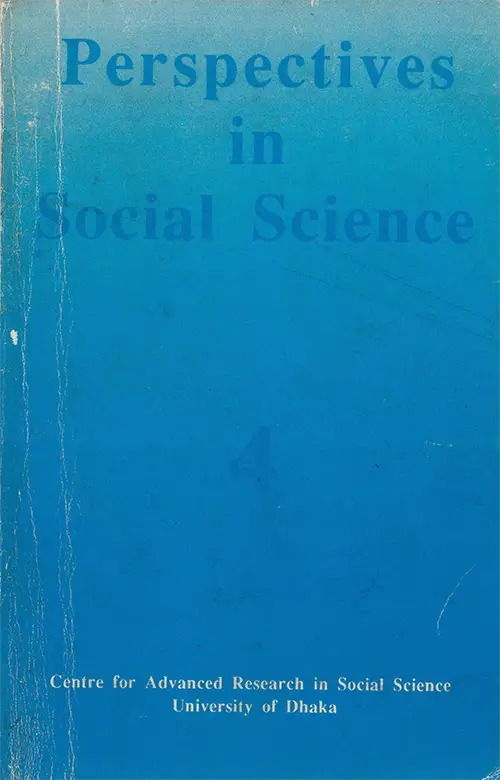
Perspectives in Social Science
Volume 4 April 1992
Perspectives in Social Science
Does Aid Necessarily Lead to and Increase in Trade and Investment ? The Case of British Aid to--Bangladesh : 1972-1986-4g
Perspectives in Social Science
Volume 4 April 1992
DOI:
ISSN :
Abstract
Existing theories of foreign aid, regardless of whether they speak for or against aid, commonly argue, either explicitly or implicitly that foreign aid to a country necessarily leads to trade and investment opportunities for the donor country. This paper examines this notion in the case of British aid to Bangladesh. Despite the fact that British bilateral aid from the seventies have shown an increasing tendency towards commercialisation, and an overwhelming amount of British aid is considered to be tied to purchases within Britain, there has been questions raised by several studies as to whether this had automatically created trade for Britain or not or whether the tying of aid has naturally led to the growth in British economy. The findings are that apart from generating consultancies (where British aid has proved lucrative), British companies did not benefit greatly from aid contracts. In the light of these findings one may therefore seriously reconsider the theoretical position that aid necessarily leads to an increase in trade and investment.
